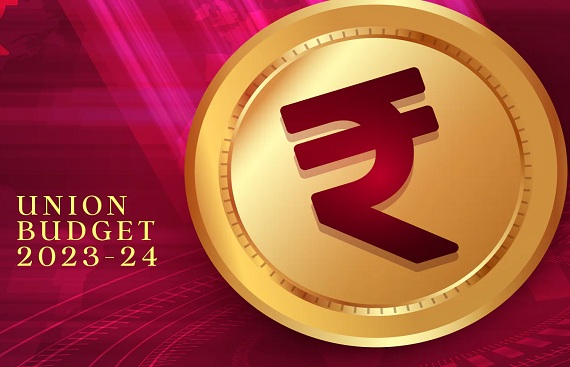Tech-Experts present a list of the key highlights for the budget for 2023

For the last two decades, India has been on the path to establish tech supremacy. The country’s burgeoning digital economy is poised for expansion, and its contribution to the government’s aim of a $5 trillion GDP by 2025 is going to be undoubtedly crucial. With the announcement of the Union Budget 2023-24 by Finance Minister Nirmala Sitharaman only a few days away, the industry is hopeful for a major boost from the government.
With India emerging as a global hub for digital capability and the roll out of 5G services in the country, the tech sector in the country is looking forward to a period of growth and stability propelled by fresh policies and other provisions from the upcoming budget announcement. The industry has been a propellant for positive change for years, as it braces itself up for new ones.
We have curated an interesting collection of budget expectations from renowned industry leaders. Please let me know if you are working on any story that would benefit from the expert commentary, or if you would like to explore it in the form of a guest article.
Appended below are the budget expectation quotes from tech leaders.
Vinod Nair, Global VP of Sales and General Manager Noventiq India, said, ''The 2023 budget will be crucial for the IT industry as many headwinds globally impact one of India’s largest employers. In the past decade, Indian IT startups have preferred to have their corporate headquarters in the US or Singapore due to those countries' favourable tax and compliance environments. If this year’s budget addresses this by providing more lenient and flexible compliance to startups, it will attract more investments and ensure that homegrown IT startups remain in India.
Additionally, the use of digital technology and the prevalent geo-political situation has created opportunities for cybercriminals waiting to exploit vulnerabilities. We have seen a significant rise in cyberattacks, resulting in the loss of confidential data and money for businesses. Therefore, cybersecurity must be a top priority from the very beginning of digitisation to ensure digital transformation. The government should look at the loss of money to cybersecurity as a loss not just to businesses but to the government.
The future belongs to Digital India, and we can secure it by investing in cybersecurity rather than doing damage control after a cyberattack. As India prepares to become more digitally literate, we must strengthen our defences against cyber-attacks by improving data protection and having a much-stronger policy in place for all sectors.
In summary, as the Prime Minister, in his last independence speech, spoke about the next decade for India being a “techade”, the complete IT industry, with its importance in this journey, will be expecting many policies favouring the IT industry.''
Jesal Doshi, Deputy CEO, B Medical Systems, said, “Focusing on this year's significant stories is essential as we cautiously enter 2023. The widespread vaccination effort, which immunised over 100 crore people, was a significant victory for the Indian government. All throughout the world, nations praised this courageous deed. We anxiously await the government's announcement of funds for the initiatives we want it to prioritise this year. Spending more money on vaccinations is one of the goals, especially across the board in the healthcare system. India must have the right tools since the fight against COVID-19 is far from over.”
“Considering the drastically dropping immunisation rates, it also necessitates acting quickly. The government must enact stricter regulations for the storage and delivery of these life-saving vaccines to both the public and private sectors. Additionally, stress the significance of using certified, top-notch medical grade equipment. Once more, they must consider a more long-term framework to guarantee that immunisations are accessible in India's rural areas.”
“We believe that separating the medical cold chain from commercial refrigeration and establishing a specialised business could aid in expanding the sector. To make it simpler to create dependable medical cold chain chains, the government should reduce import fees on necessary components.”
Raj Sivaraju, President of APAC, Arete, said, India's economy is rapidly advancing and will play a significant role in boosting the global economy. The country's technology industry will attempt to identify the cybersecurity investment necessary for the tech sector as the government is scheduled to propose its budget for FY2023–24 in a few weeks. With the rapid implementation of technology initiatives and programs, the lowering of administrative backlog, and inclusive development in 2023, the cybersecurity industry is expected to generate US$2.37 billion in revenue. Security Services is the market's biggest category, with a US$1.19 billion market volume anticipated in 2023. By 2027, the market is projected to generate revenues with a compound annual growth rate (CAGR) of 14.61%, amounting to US$4.09 billion. The country's IT industry will closely monitor the spending on requirements for digital public infrastructure, capability building, and incentives for enhancing cybersecurity services.
Priya Ranjan Panigrahy, CEO and Founder of CEPTES Software, said, Digital India Program is a great initiative for companies like start-ups, SaaS based and new-age companies. We are creating the SMB booster program in cloud space which enables small businesses to get into the digital transformation very quickly without much hassle, which can take care of sales, service, marketing automation and also connecting to finance operations like automatic e-invoice and automatic billing solutions can be done. We also do KYC solutions which can be so easy to adopt. The budget will be focusing on measures that support growth and innovation in the software and SaaS industry. Support for the development and adoption of new technologies such as cloud computing artificial intelligence, machine learning and the Internet of Things.
Technology Clusters in tier 1 cities in India; while there are IT talents every corner in India they are forced to move to tier 1 cities. As a result, big cities are enduring infrastructure issues. Govt. must come-up with a special budget for booming IT infrastructure in tier 2, or Tier 3 cities as well to take-off the load from big cities. Measures to address the skills gap in the IT industry and support for training and upskilling of workers. Tax incentives for companies that invest in research and development. This year's budget may also include measures to address concerns around data privacy and security, as well as efforts to increase the adoption of digital technologies in various sectors.
Sujit Patel, Founder and CEO, SCS Tech, said, With the world moving to digital products and services, cybersecurity becomes very important for individuals and companies to take care of their digital assets like sensitive data, PII (Personally Identifiable Information), PHI (Protected Health Information), intellectual property to name a few.
While speaking about cybersecurity threats as malware, spoofing, phishing or third-party data breaches one should implement the minimum cybersecurity requirement as per their scenario, corporates should pay enough attention to latest cyber security tools, security employees’ training and education, controlling physical access to their digital data, in-time updates for the software; making proper backups of the information, and securing the internet connection. Like they say, ‘Prevention is better than cure’.
Read More News :
Economic Survey 2023: President Droupadi Murmu discusses the joint session of Parliament


.jpg)
